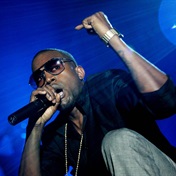
Kings of Mulberry Street
Director: Judy Naidoo
Starring: Aaqil Hoosen, Shaan Nathoo, Amith Sing
. . . . -
“Moer him, ekse!”
With that line, Kings of Mulberry Street opens. Ticky, one of the kings in the title, utters the line while watching one of the Bollywood productions that the film offers the audience as snapshots of the cultural life of South African Indians at the time.
Kings of Mulberry Street is directed by the prolific Judy Naidoo, and tells the story of two boys and their families and lives in the fictional Sugarhill District in the 1980s. The make-believe place has much to do with the nostalgic feelings Naidoo evokes throughout the film.
Mulberry Street – an amalgamation of Indian areas dotting KwaZulu-Natal’s north coast – is poignantly rendered through shots panning the sugarcane fields, the industry that led to South Africans of Indian origin to settling here.
These subtleties linger as the film’s plot follows the two child leads – Aaqil Hoosen as Ticky and Shaan Nathoo as Baboo – on their shenanigans to outwit the local thug Raja. The chemistry between the three is a constant, and Hoosen shines as a charou Batman, surveying his land from the rooftops. Nathoo gives depth to the “laarnie from Joburg” stereotype rife in South African Indian communities.
The two develop a strong friendship despite class and religious differences (Ticky is Hindu, Baboo is Christian), and their energy propels the film forward – gently assisted by Rizelle Januk and Kogie Naidoo. Both women give amazing performances as Charmaine Chetty, Ticky’s mother, and Granny Chetty – demonstrating how womanhood and motherhood is a blend of fierceness and care in the working class.
Sugarhill District is monoracial, a sign of apartheid segregation, but also allowing the intricacies of South African Indian communities to be explored in a way I haven’t seen in a mainstream production. Baboo is as middle-class as a brown person could be under apartheid, eating typical English meals and living in a house full of plush couches and kitchen appliances.
Ticky, whose father works for Raja, is barely able to afford to stay in school. The tensions and prejudices between “laarnies and charous” are explored with the texture that comes from lived experience. One element of that is in the use of a Durban accent or dialect by working-class characters and actors.
In one of their first meetings, Ticky tells Baboo: “I can walk English, I can talk English, I can laugh English!”
The film smartly makes this kind of commentary while keeping the audience in stitches as Ticky nonsensically strings together complex English words to impress his soon-to-be best friend.
Naidoo explains: “An exaggerated Durban Indian accent tends to distract from the story and what is really happening in a scene. I also wrote and directed in a way that encouraged natural performances.”
Baboo’s father tells him to not watch Bollywood films because “that stuff will turn your brain into candyfloss”, but Ticky has grown up on classic 80s Bollywood fare. For Ticky, his sense of morality is intertwined with films such as the 1989 hit Ram Lakhan, which he and Baboo watch as their friendship grows. For Baboo, Bollywood helps him make sense of the Mulberry Street happenings.
However, in a crucial scene, he shouts: “This is not Bollywood, it’s real life!”
His words felt like a salve against overly saccharine and orientalist ways of understanding South African Indian communities in the media.
Ultimately, the film is about commonalities instead of differences.




 Publications
Publications
 Partners
Partners








